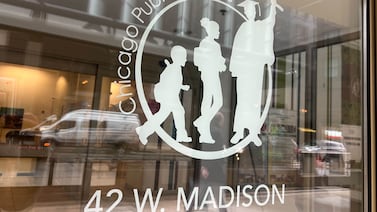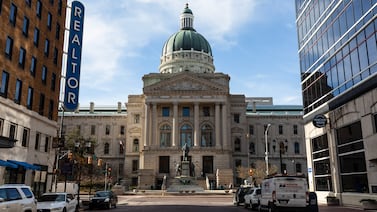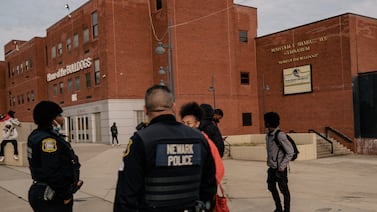Denver charter schools that received federal COVID-related small business loans last spring won’t need to forgo any future funding to make up for the $16 million in forgivable loans they received, district and charter officials said.
An earlier agreement implied such a reconciliation would happen. It was never clear how the arrangement would work, only that the district would analyze whether the loans had created funding inequities between charter schools and traditional public schools — and that the two would work to offset any gap.
But in light of an influx of other federal education relief, Denver Public Schools decided not to pursue the reconciliation.
“It’s not the same priority and not in the crosshairs as much as it was initially,” said Grant Guyer, who oversees charter schools for the district.
Guyer added that the district’s lawyers advised that Denver Public Schools has no legal authority to make charters reconcile the funding.
The forgivable loans were made under the federal Paycheck Protection Program, which the first federal coronavirus relief bill created. The goal was to help small businesses stay afloat and keep their workers employed during the pandemic.
Across the country, charter and private schools got $6 billion in paycheck protecting funding, according to Education Week. Charter school critics nationally balked at the independent public schools getting federal stimulus money that wasn’t available to traditional public schools.
Denver charter schools qualified for the loans because they are run by nonprofit organizations, not by the school district. (Chalkbeat is also a nonprofit and received federal paycheck protection funding.) A June 2020 district memo prepared at the request of a Denver Public Schools board member said 32 of the city’s 60 charters received paycheck protection funding.
The awards ranged from a high of $5.9 million to the homegrown STRIVE Prep network, which runs 10 schools, to a low of $133,000 to The CUBE, a single charter high school. About a year after receiving the money, The CUBE closed due to low enrollment and high operating costs.
A year ago, Denver district and charter leaders agreed to calculate any inequity the paycheck protection funding caused. Any reconciliation deemed necessary — such as charters taking less than their share of subsequent federal stimulus money — was set to happen by the end of the fiscal year, which ended last month.
“Our charter partners are sensitive to what it means for some public schools to access public funding that is not available to all public schools,” says the memo from June 2020, drafted by Guyer’s predecessor, Jennifer Holladay, who left the district in January. “They remember what this was like in their own history. They recognize that the charter student of today is a district student of tomorrow, and vice versa. Our students are our students.”
Charter leaders told Chalkbeat they used the paycheck protection funding in part to avoid layoffs at a time when the entire district was facing a budget shortfall. The memo notes that charters often have smaller financial reserves and higher facilities costs than district schools and that the philanthropic dollars many charters rely on became uncertain in the pandemic.
Chris Gibbons, the founder and CEO of STRIVE Prep, said the federal Small Business Administration forgave his network’s $5.9 million in paycheck protection loans. Gibbons said he supported reconciling that funding when it was discussed a year ago, but that the district subsequently made a decision not to pursue it.
Guyer concurred. “Over time, as additional funding rolled in, and people continued to try and focus on supporting students as best they could during a time of shifting expectations during the pandemic, it just did not continue to be as large a priority as it originally was,” he said.






